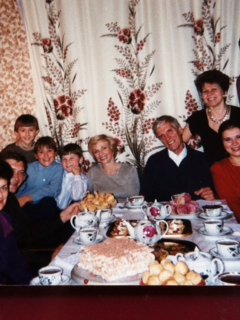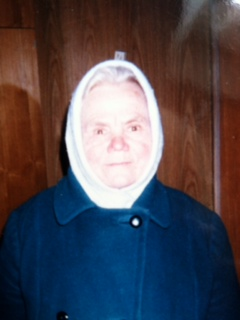Russian Hospitality
 |
| Russian teatime |
|---|
Volunteer expert Richard Kahlson recalls his time in Russia just after the collapse of the Soviet Union
Shortly after Perestroika, in 1996, IESC sent us to Vladimir, Russia. From American television we had the idea that Russians are rather cold and distant people who seldom smiled. However, during our time in Russia we discovered their warmth and hospitality.
The project was a huge success and we made life-long friends.
At that time, business was mostly done on the barter system. The lamp manufacturer with whom we worked had a warehouse filled with items for barter. In the warehouse, there was jewelry, clothing and the like. Setting up a different model was hugely successful.
This IESC venture was celebrated in many ways. The local schoolchildren invited us to the school to sing in Russian and English. Later, this relationship continued with 30 pen pals in the US (our daughter is a schoolteacher in Pennsylvania.)
We were struck by Russian friendliness when an elderly lady Sonia walked many miles in the snow to present us with mittens. She had shorn her sheep and then spun the yarn on her spinning wheel to knit them. We still exchange visits with our Russian friends.
The nearby village of Suzdal was particularly amazing. It had been a town of churches, monasteries and convents. During the communist times, these places became prisons, notably housing U.S. U2 pilot Gary Powers for a time.
 |
| Sonia walked miles in the snow to give us mittens |
We saw the village restored. Interestingly, the villagers who had been hiding the precious gold, jewelry, chalices and artifacts for generations emerged with almost all of them at Perestroika. They did not sell them even during famine.
We also went on assignments to Ukraine and Bulgaria. Ukraine memories include managers and workers seeing us off at the train station. There was Manager Eugene the Great, Assistant Manager Eugene the Less (but not much less) and Eugene the Just (the interpreter). This tongue-in-cheek illustrates their wonderful sense of humor.
In Bulgaria, the communication was more challenging. In their language, one nods the head up and down for “no” and side to side for “yes.”
Still, the window manufacturer responded well to our suggestions about privatization and all went well.
-Richard Kahlson, IESC Volunteer Expert



